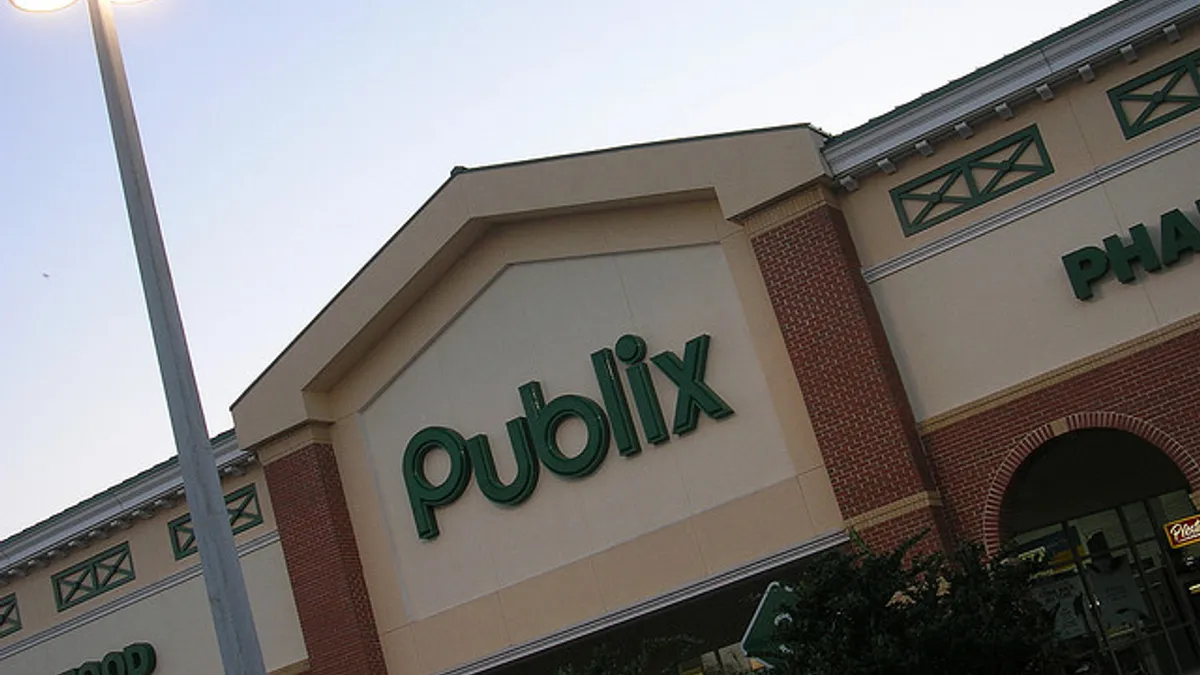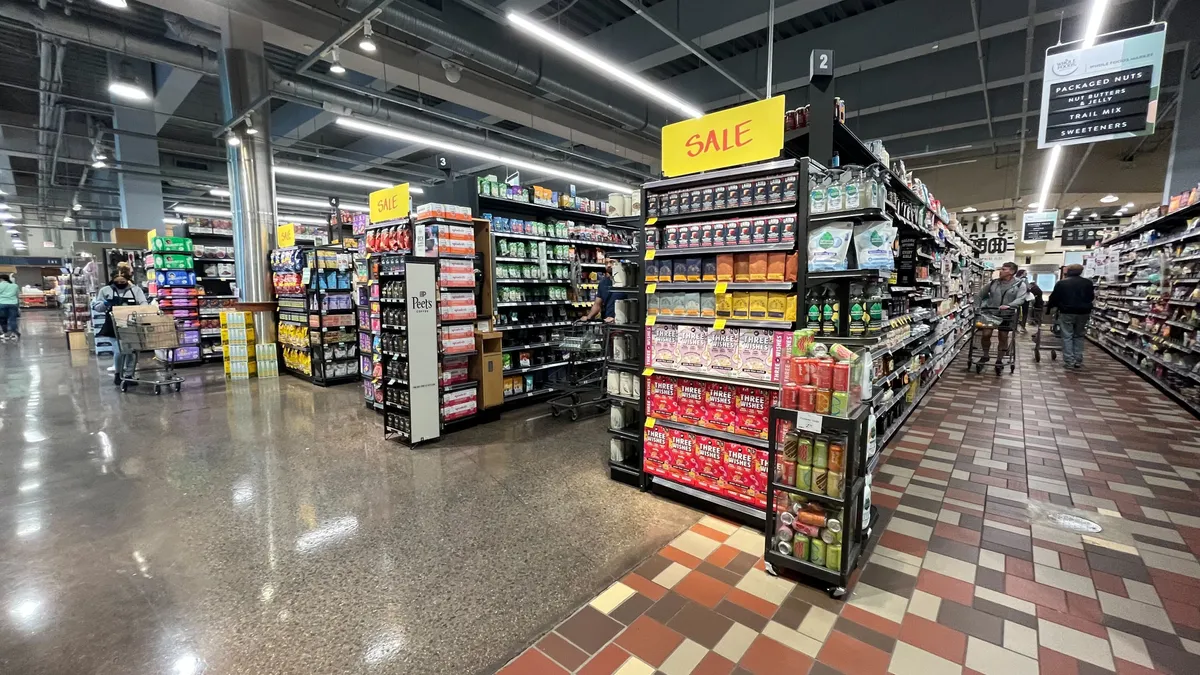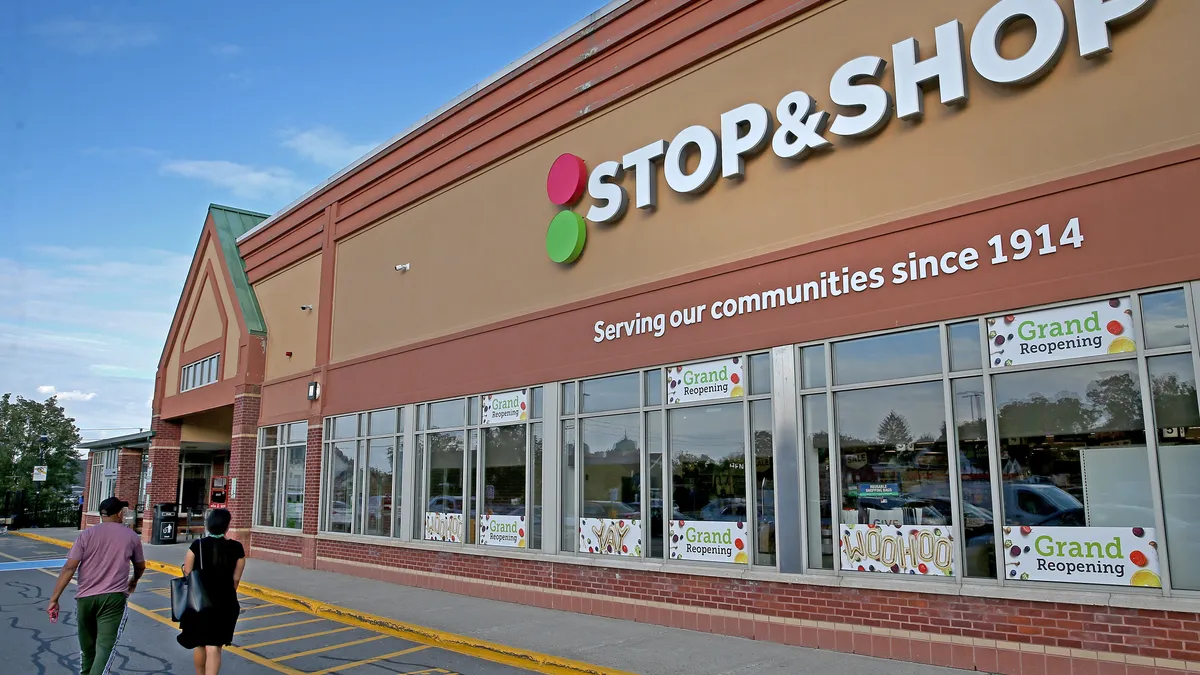Dive Brief:
- Publix Super Markets on Monday reported its comparable store sales for the first quarter of 2017 declined by 2.1% — the first comps decline in seven years for the company, according to Supermarket News.
- The Florida-based chain attributed the results to a shift in the Easter holiday from Q1 last year to Q2 this year, and to store cannibalization as new stores are built near older ones.
- Publix’s results could be a barometer for Kroger’s performance, according to an analyst from Deutsche Bank. The two stores’ results tend to follow similar patterns.
Dive Insight:
This was a tough quarter for a typically high-performing company. Publix, which operates close to 800 stores in Florida, has a fiercely loyal customer base in its home state built through years of top-notch execution, quality products and ahead-of-the-curve services like its Aprons recipes and cooking classes program.
So what happened? Judging by Publix’s response, the results are an anomaly attributable to new stores replacing old ones and to a major holiday shifting from one quarter to another. Although the company didn’t mention it, price deflation also likely played a role in the downturn.
But looking at the bigger picture, there are worrying signs for Publix. In the central region of the state, according to The Shelby Report, the company has lost share to discount retailers Wal-Mart and Aldi. Both grocers have surged lately: Wal-Mart, which operates close to 400 stores in Florida, has renewed its focus on low prices, stating it wants to be 15% cheaper than its rivals 80% of the time; Aldi, meanwhile, is in the midst of a $1.6 billion update aimed at offering an improved store experience to go along with its low prices.
Publix’s superior service and execution has helped it outperform less expensive rivals, but how will the company respond as those rivals update their stores and continue lowering prices? One answer is store growth. Publix is aggressively expanding northward, highlighted by an aggressive push into the profitable North Carolina market. It’s also expanding into Virginia, with at least twelve stores planned in the Richmond area over the next few years.
These areas offer promising market dynamics, but also tough established competitors like Harris Teeter and a surging Food Lion. Other retailers are also moving in, including Wegmans and the industry’s most anticipated new arrival, Lidl. Publix’s success in these new markets will likely hinge on whether the company can inspire the same sort of loyalty that it enjoys in Florida.










